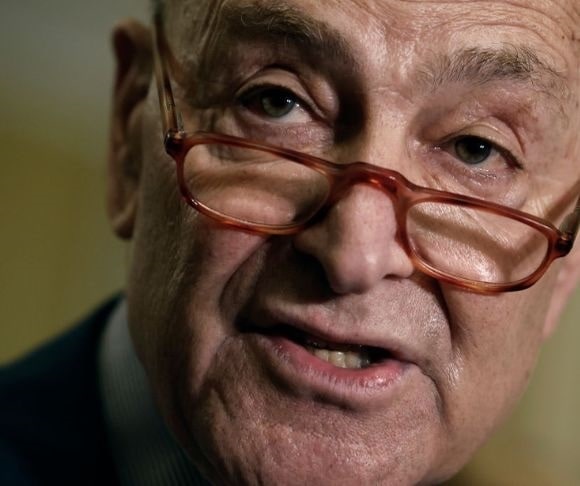Pass a clean debt limit increase, no strings attached. We will not negotiate! That was the line parroted by the president and Democrat lawmakers alike as time ticked away toward the disastrous default they say is coming sometime in early June. But then House Republicans passed a debt limit bill of their own – one with considerable budget cuts and a limit to spending hikes in the future – and the Democrats started singing a slightly different tune.
Nonnegotiating Negotiating?
After months of refusing to discuss the borrowing cap at all short of simply repeating his “clean bill” demand, President Joe Biden on Monday, May 1, called Speaker of the House Kevin McCarthy (R-CA) with an invitation to meet up and talk on Tuesday, May 9. White House Press Secretary Karine Jean-Pierre clarified the next day that the talk was not a sign that Biden would negotiate on the debt limit, and that it was the duty of Congress to raise the cap in order to pay the nation’s debts.
But if there’s nothing to discuss, why ask McCarthy for a meeting?
Senate Majority Leader Chuck Schumer (D-NY) took a similar approach. Schumer said publicly that the Republican bill “would tear at the fabric of American society, impose dramatic cuts to our public security and cut law enforcement dramatically at a time when we need help from them.” Worse, it would result in the “abandonment of veterans and terrible job losses,” he argued.
Yet just before uttering such scathing remarks, the majority leader had entered that very bill on the Senate calendar under a special rule that allows it to go straight to a floor vote, skipping any committee consideration. What’s the New York Democrat up to? Is he giving the bill a chance or just setting it up to fail dramatically in the public eye? Perhaps it’s simply to tuck the bill away so it’s there as a last resort before an actual default. In case of emergency, break glass – if the GOP won’t back down, then an increase with budget cuts attached may be better than none at all.
Debt Limit Increase, by Any Means Necessary?
Convincing McCarthy isn’t the only option being explored, of course. House Democrats announced on Tuesday a plan they’ve apparently been secretly working on since January. House Minority Leader Hakeem Jeffries (D-NY) revealed his intent to use a discharge petition to force a vote on another debt limit bill, even if Speaker McCarthy doesn’t want to call a vote.

Chuck Schumer (Photo by Win McNamee/Getty Images)
This legislative vehicle is obscure for a reason; it rarely works. If 218 representatives sign the petition, they can force a vote without the speaker’s consent. However, since the party which holds the speakership also holds the simple majority needed to clear this hurdle, it means some lawmakers will have to cross the aisle in open rebellion against their own party leadership. There are, at present, 213 Democrats and 222 Republicans in the House. So to pull it off, Jeffries needs five such turncoats. That’s certainly not impossible – but it does seem improbable, given the blatant nature of the mutiny the minority leader hopes to achieve.
Meanwhile, at the other House in the Swamp, the president and his administration are looking for a way to force Republicans to fall in line by trapping them with the Constitution. The theory is that the 14th Amendment forbids the nation from defaulting on a debt. Section 4 opens with: “The validity of the public debt of the United States, authorized by law, including debts incurred for payments of pensions and bounties for services in suppressing insurrection or rebellion, shall not be questioned.”
“The Constitution’s text bars the federal government from defaulting on the debt – even a little, even for a short while,” Garrett Epps, a constitutional scholar at the University of Oregon, wrote in a November article for Washington Monthly. “There’s a case to be made that if Congress decides to default on the debt, the president has the power and the obligation to pay it without congressional permission, even if that requires borrowing more money to do so.”
 It’s unclear just how much Biden himself supports this particular act – but the idea of using the Constitution as a work around to allow federal spending without congressional restraint likely has many a statist salivating. Of course, what Professor Epps seems to have missed is that “there’s a case to be made” that, even if he’s correct in his interpretation, the House bill does the job. It just comes with strings attached that Democrats don’t like.
It’s unclear just how much Biden himself supports this particular act – but the idea of using the Constitution as a work around to allow federal spending without congressional restraint likely has many a statist salivating. Of course, what Professor Epps seems to have missed is that “there’s a case to be made” that, even if he’s correct in his interpretation, the House bill does the job. It just comes with strings attached that Democrats don’t like.
Will five House Republicans swap sides on this? Maybe. Could Biden commandeer control of the debt limit? Perhaps – though it seems quite unlikely that the current Supreme Court would rule in the president’s favor when such a move is inevitably challenged. Far more probable is that McCarthy caves – for what can stand before the resolve of establishment politicians to spend other people’s money?




